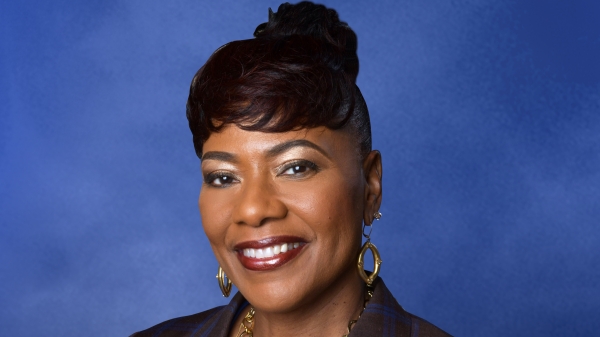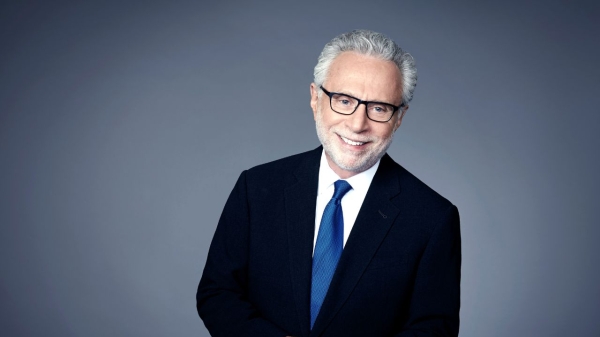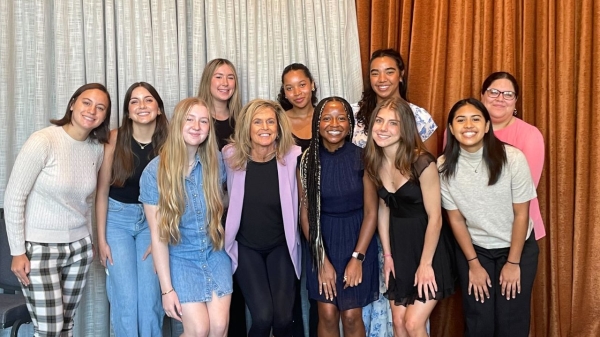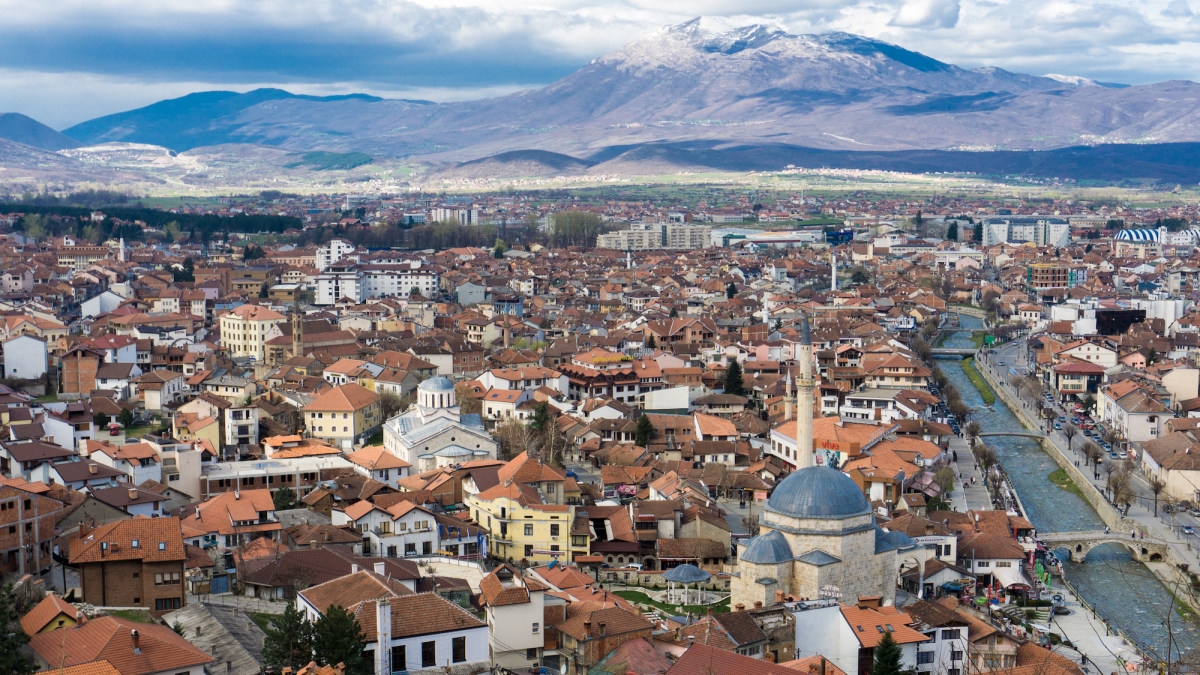President Donald Trump’s bid for a diplomatic win in Kosovo was recently thrown into disarray when a European Union-run criminal tribunal announced an indictment against Kosovo President Hashim Thaçi, who was set to travel to Washington, D.C., for a summit with his Serbian counterpart, Aleksandar Vučić.
This development has put the prospects of settling the unresolved issues stemming from the 1998–99 Kosovo war in jeopardy. However, the White House’s approach to brokering a diplomatic breakthrough between Kosovo and Serbia had been criticized by analysts and former American diplomats as an ill-conceived and long-shot attempt to reach a final settlement.
Victor Peskin, an associate professor in the School of Politics and Global Studies at Arizona State University and a faculty affiliate at the University’s Melikian Center, briefed the then-incoming U.S. ambassador to Kosovo at the State Department in 2018. He also spoke to ASU Now about the demise of the planned Kosovo-Serbia summit and what it means for U.S. diplomacy in the Western Balkans.
Victor Peskin
Question: Why haven’t Serbia and Kosovo reached a final political settlement so many years after the 1999 NATO military intervention forced a Serbian military withdrawal from Kosovo?
Answer: Reaching a final resolution to the political conflict between Kosovo and Serbia has long been a vexing challenge for U.S. as well as European diplomats. This challenge stems from the war itself — the roots of which lay in the armed conflict that arose from Serbia’s repressive rule of Kosovo and the Kosovo Liberation Army’s fight for independence. In the face of increasing Serbian atrocities against the majority Kosovar Albanians, NATO launched a 78-day bombing campaign, which forced then-Serbian leader Slobodan Milošević to withdraw his forces from Kosovo in June 1999. The United Nations then administered the province for nearly a decade. Kosovo declared independence in 2008. But Serbia, citing its deep historical attachment to Kosovo, has refused to relinquish its claim over the province.
Kosovo statehood has been championed by the U.S. and most European states, and today around 100 countries have recognized the country’s independence. But Kosovo’s bid for full international recognition has stalled. Russia and China strongly oppose Kosovo independence. Moreover, five EU states have not recognized Kosovo.
The biggest obstacle to a final settlement remains whether and under what terms Serbia will relinquish its claim on Kosovo and accept its independence. Despite the ongoing dispute over Kosovo’s status, relations between Serbia and Kosovo have improved in the last two decades. An EU-led “dialogue” has led (the Serbian and Kosovar capitals) Belgrade and Pristina to cooperate on a range of issues. Yet progress hit a roadblock in light of Serbia’s derecognition campaign in 2018 and Kosovo’s retaliatory move to slap 100% tariffs on Serbian products. Some of those tensions have recently eased. But a final political settlement remains elusive.
Q: A planned White House summit between the presidents of Kosovo and Serbia was scheduled for late June in Washington, D.C., but was abruptly called off. What prompted the cancellation of the talks?
A: On June 24, just days before the start of the scheduled talks in Washington, the Specialist Prosecutor’s Office of the Kosovo Specialist Chambers (KSC) announced the indictment of Kosovo President Hashim Thaçi, Kadri Veseli (the head of Thaçi’s Democratic Party of Kosovo) and an undisclosed number of Kosovar Albanian suspects. The KSC is a Hague-based EU-run criminal tribunal that has received strong American backing. According to a Specialist Prosecutor’s Office press statement, Thaçi, the former leader of the Kosovo Liberation Army, and others are facing a 10-count crimes against humanity and war crimes indictment in connection with torture, persecution, enforced disappearances and close to 100 murders. The victims of these crimes were not only ethnic Serbs, but also Roma and Kosovar Albanian political opponents.
The charges are awaiting confirmation by a KSC pretrial judge. Thaçi will face trial if the charges are confirmed and says he will step down from the presidency if the indictment is confirmed.
News of the indictment quickly led to the collapse of the summit. Thaçi withdrew from the talks, which led his counterpart, Serbian President Aleksandar Vučić, to do the same. Coming on the eve of the scheduled summit, the indictments came as a shock to Trump’s Balkans envoy, Richard Grenell. The Specialist Prosecutor’s Office revealed the existence of the indictments (which had been issued under seal on April 24) because of what it characterized as efforts by Thaçi and Kadri Veseli to obstruct justice.
Q: Was there a proposed settlement outlined in advance of the scheduled talks in Washington? If so, what did the contours of the anticipated settlement look like?
A: There was not a proposal for a final settlement on the agenda of the Washington summit. But news reports indicated that Richard Grenell hoped the talks would advance economic ties between Kosovo and Serbia and, in turn, lead the way for more formal negotiations later in 2020.
Kosovo President Thaçi and his Serbian counterpart, Alexsander Vučić, have in the past expressed support for a controversial plan that would involve land swaps and the redrawing of borders. In the plan, parts of northern Kosovo would be exchanged for portions of southern Serbia. In the past, American diplomats have been strongly opposed to land swaps in the Balkans, fearful that it could lead to destabilizing population transfers and set a precedent for a similar development in Bosnia. However, in 2018, then-National Security Adviser John Bolton indicated the Trump administration’s openness to land swaps, noting that if Kosovo and Serbia’s leaders embraced the idea it could break the impasse between both countries.
Q: Do you expect the U.S. to bring the leaders of Kosovo and Serbia together again to negotiate an end to their differences?
A: The Trump administration would like to host another summit. But any future meeting is unlikely to involve Thaçi if his indictment is confirmed.
Earlier this month, European leaders jumped into the diplomatic vacuum that followed the canceled summit. German Chancellor Angela Merkel and French President Emmanuel Macron hosted a virtual meeting between Vučić and Avdullah Hoti, Kosovo’s new prime minister. This represented a bid to revitalize the EU-sponsored normalization talks between Kosovo and Serbia that were initially launched in 2011 but had been put on hold in 2018.
Q: What makes the settlement of the Kosovo-Serbia dispute important for the current administration and for the U.S. more generally?
A: Reaching a final political settlement has long been an important foreign policy objective of successive U.S. administrations, as it has been for the EU. A resolution of the territorial dispute is seen as holding the key to ensuring long-term stability in this part of the Western Balkans, easing Kosovo’s path for full international recognition, and moving both Kosovo and Serbia toward eventual EU membership. Even so, some analysts and former U.S. diplomats fault the Trump administration for aggressively pushing for a final settlement in the hopes of scoring a foreign policy victory that might boost Trump’s reelection prospects.
The scheduled Washington summit came in the wake of a constitutional crisis triggered by the removal of Prime Minister Albin Kurti, the leader of the Vetëvendosje party, which is an opponent of Thaçi’s PDK party. In late March, and just as Kosovo was grappling with the beginning stages of the COVID-19 pandemic, Trump’s Balkan envoy, Richard Grenell, reportedly pressured the Kosovo parliament to back a no-confidence vote to remove Kurti, who had recently become prime minister.
Grenell apparently wanted Kurti out because the prime minister had strongly opposed the controversial idea of lands swaps as a means to reach a final political settlement with Serbia, as my colleague Mieczyslaw P. Boduszynski and I wrote in Foreign Policy.
Kurti’s removal strengthened President Thaçi, who has expressed support for land swaps. The U.S. moves to alter Kosovo’s government and sideline the EU in the run-up to the Washington summit created a rift with its European allies.
Q: You’re in the process of writing a book on this subject. Tell us the premise.
A: The book examines the creation and significance of a unique international judicial institution — the Kosovo Specialist Chambers. I embarked on this book project because I was intrigued with understanding what led the U.S. and EU — ardent allies of the Kosovar Albanians that had intervened militarily against Serbia and had championed Kosovo statehood — to establish a legal mechanism that would scrutinize the alleged criminality of high-level Kosovar Albanians. The move to establish the tribunal lies in the bold decision made in Washington and Brussels to get to the bottom of the alleged role of former KLA commanders in a range of wartime and postwar crimes.
These alleged crimes — which included the disappearances of Serbs, Roma and Kosovar Albanians and their torture in a number of makeshift detention camps in Albania — were the subject of a 2011 Council of Europe report authored by Swiss senator Dick Marty.
The EU-run Special Investigative Task Force was established in the wake of the Marty report and was headed by its chief prosecutor, Clint Williamson. Williamson’s successful investigation, highlighted in his July 2014 statement of his preliminary investigative findings, laid the groundwork for the establishment of the Kosovo Specialist Chambers. Williamson formerly served as U.S. ambassador-at-large for war crimes and is currently senior director for international rule of law, governance and security at the McCain Institute and distinguished professor of practice at ASU’s Sandra Day O’Connor College of Law.
Top photo: Cityscape of Prizren, Kosovo. Courtesy of iStock/Getty Images
More Law, journalism and politics

Peace advocate Bernice A. King to speak at ASU in October
Bernice A. King is committed to creating a more peaceful, just and humane world through nonviolent social change.“We cannot afford as normal the presence of injustice, inhumanity and violence,…

CNN’s Wolf Blitzer to receive 41st Walter Cronkite Award for Excellence in Journalism
Wolf Blitzer, the longtime CNN journalist and anchor of “The Situation Room With Wolf Blitzer,” will accept the 41st Walter Cronkite Award for Excellence in Journalism, Arizona State University has…

Cronkite School launches Women Leaders in Sports Media live-learn program
Women in a new sports media program at Arizona State University got a solid game plan from a sports veteran at an Aug. 20 welcome event.“Be humble, be consistent and be a solver,” Charli Turner…

